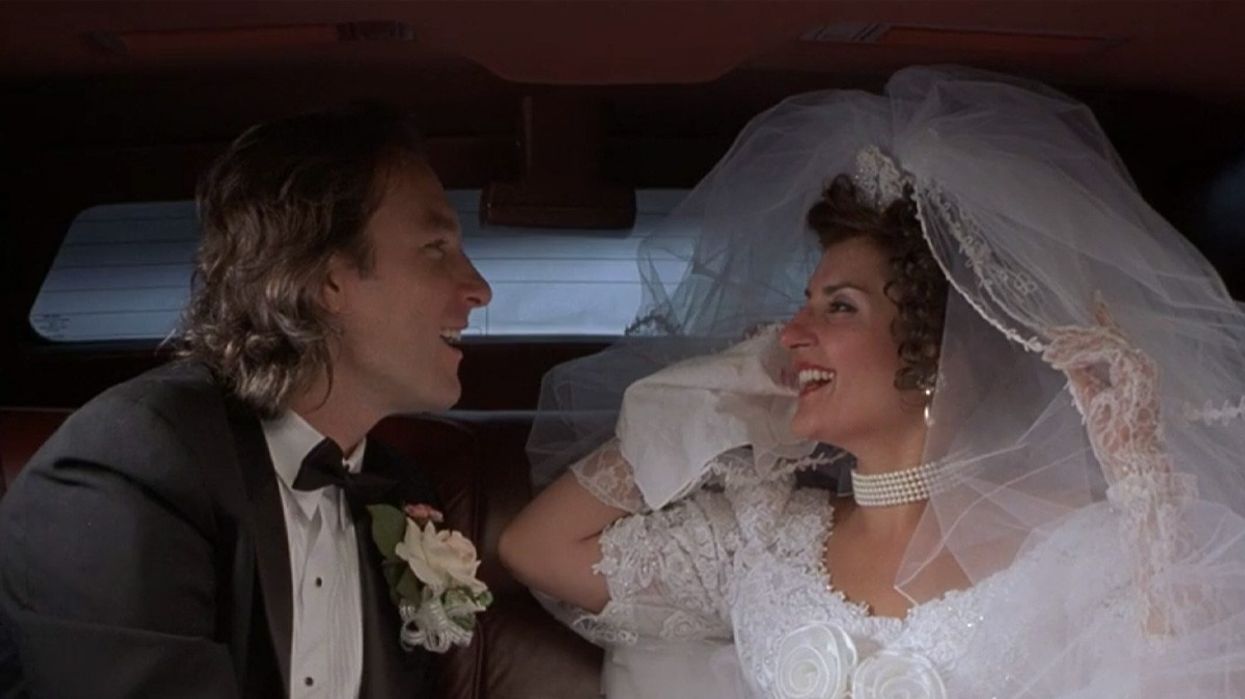How Did 'My Big Fat Greek Wedding' Buck Conventions to Become a Mega Hit?
Great romantic comedies have the potential to be very successful.

I love a great Hollywood success story that involves someone sticking to their guns and believing in themselves. That's what Nia Vardalos did with My Big Fat Greek Wedding, along with bucking the conventions she had seen in romantic comedies that came before.
Do you remember where you were when My Big Fat Greek Wedding came out? There was a time before when I could feel a palpable buzz in the air. The trailer ran in front of a movie I saw with my parents, and they laughed so hard I knew that movie would be a hit. And it was—a massive hit, actually. It became the highest-grossing romantic comedy of all time, making $241.4 million in North America, despite never reaching number one at the box office during its release.
Made on just a $5 million budget, it ultimately grossed over $368.7 million worldwide, becoming one of the top romantic films of the 21st century.
But what made a movie like this so successful? I mean, it was nominated for the Academy Award for Best Original Screenplay! I think the answer lies in how the movie shifted conventions and was truthful to its characters.
Let's dig in!
How Did My Big Fat Greek Wedding Buck Conventions to Become a Mega Hit?
For those of you who don't know the story, My Big Fat Greek Wedding started as a one-woman play written by and starring Vardalos. She performed for six weeks at the Hudson Backstage Theatre in Los Angeles in the summer of 1997. The motivation for writing the play, according to Vardalos, was "to get a better agent."
Well, the play was very popular, and a bunch of Hollywood executives saw it, including actress Rita Wilson. Wilson is part Greek, and the story echoed with her. She got her husband, Tom Hanks, to see it, and they both saw the immediate movie potential. They joined as producers and took the story out on the market.
Even when people pushed back and tried to change the story, Vardalos and her producers stood firm. This was a Greek story about Greek people. Hanks said he always wanted Vardalos to star because it "brings a huge amount of integrity to the piece because it's Nia's version of her own life and her own experience. I think that shows through on the screen and people recognize it."
They teamed up with Playtone and IFC Films and made the movie for $5 million. They had no idea they had a megahit on their hands.
How Did My Big Fat Greek Wedding Break the Genre Mold?
When you look at the romantic comedy genre, you usually see a story about a young woman in a city making her way into the world. There's nothing wrong with that. But audiences were bored of seeing that protagonist. And there were a whole lot of people out there asking to see themselves on screen.
This movie told the story of a woman who lived at home with her parents in the suburbs. Her family was ethnic, loud, and proud. And she was close with them. To be romantic in her life, you not only had to respect her, but you also had to respect the family. We also lost the Pygmalion makeover, and just saw someone embrace adulthood and get a haircut and some makeup.
While I don't think it holds up without cringing, we saw the patriarch of the family, used to women staying home and making babies, loosen up his reins on the family and old way of life, and embrace women in the workplace and going to school. Our lead character never has to sacrifice who she is to get what she wants. In fact, she gets to embrace herself more and see that it opens doors for her.
These clever shifts in tropes and conventions make the movie feel fresh and the story feel universal.
Let me know what you think in the comments.











